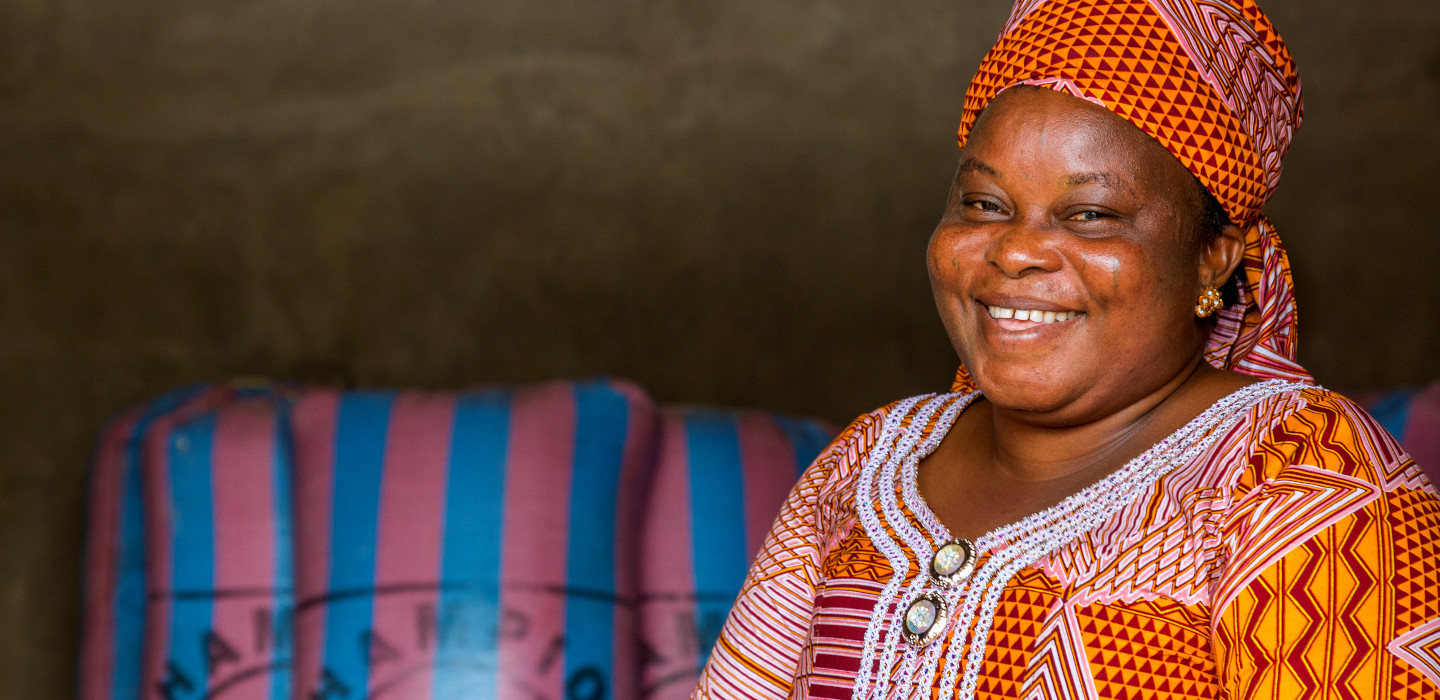Rural women: The key to building back better in a post-COVID world
IFAD Asset Request Portlet
Asset Publisher
Rural women: The key to building back better in a post-COVID world
Estimated reading time: 4 minutes
In times of crisis, rural women are the key that holds families and rural communities together – and in times like these, they need our support more than ever.
Like countless people across the world, the COVID-19 pandemic has profoundly impacted rural women. Their agricultural activities have been affected to a greater extent than those of men – which is particularly worrying, given that they were already at a disadvantage in accessing productive resources. Yet, despite the difficulties they are facing, rural women are showing their resilience in the face of the crisis – and their work is proving crucial to preventing hunger in hard-hit areas.
Rural women are also facing many of the same challenges that other women all across the world are experiencing during the pandemic. Generally, women are more likely than men to have lost their jobs, given that they are overrepresented in informal and insecure types of employment. Lockdown measures, meant to keep populations safe from disease, can nevertheless be dangerous for women at risk of experiencing domestic violence. Meanwhile, the dominance of men in decision-making processes is playing out in debates and decisions over COVID-19 responses across the globe, contributing to failures in many countries to protect women from the worst impacts of the pandemic. And with family members spending more time at home, women are seeing their unpaid workloads increase – including taking on most of the care of sick family members.
In the 25 years since the Beijing Declaration and Platform for Action, we have made tremendous progress in women’s empowerment and gender equality. Today, women are more likely to be in leadership positions, more likely to have decent employment, more likely to have access to health care and education.
Yet the current pandemic risks reversing the many gains that have been made. At this time of crisis and flux, it is imperative that we do not allow progress to backslide. Women, especially rural women, must be at the centre of efforts to achieve the fifth Sustainable Development Goal: “Achieve gender equality and empower all women and girls.”
Safeguarding and accelerating progress by putting rural women centre stage
For IFAD, rural women have always been central to everything we do. We know there can be no sustainable development without empowering the 1.7 billion women and girls who live in rural areas. And we have witnessed first-hand that empowering rural women does more than benefit the women themselves – it benefits their families and communities too.
One of our main areas of focus is reducing women’s unpaid workloads. We do this in many different ways, including building water tanks and biogas systems to make it easier to collect water and energy; constructing rural feeder roads to ease transportation; and providing childcare facilities tailored to rural women’s specific needs.
Another priority is transforming the allocation of domestic tasks. We do this by working at the family level through what we call Household Methodologies (HHM). HHM is a unique approach that first engages all household members in creating a shared vision for the future, then guides them through deciding what each member’s role will be – and what tasks he or she will take on – to achieve this vision. This method frequently results in changing discriminatory gender norms and often opens up opportunities for women to take up employment and be more active in local commerce, thus increasing their incomes too.
We also work to prevent gender-based violence. HHMs are a great support here too, as they directly promote behavioural change at the household level. Our other strategies in this regard include strengthening women’s representation in producers’ organizations and community decision-making bodies. Beyond empowering the women themselves, this increased participation also contributes to social change throughout the community, including a reduction in gender-based violence.
The world needs rural women – and their contributions – more than ever
Although rural women face significant challenges, we have seen that there are solutions. And we have seen that rural women can sustain themselves and their communities and help build thriving rural economies – when they have the opportunity to do so.
Now, as the COVID-19 pandemic threatens to reverse progress, we need to do even more to support them. At IFAD, we recognize that rural women are central to our COVID-19 response work. We know that investing in their activities will not only protect them from the worst of the pandemic’s socio-economic effects, it will ensure their families and communities can continue producing, selling and accessing nutritious food.
As just one of many examples, we’ve been working with a women’s cooperative in central Nigeria, helping them reorganize and adapt their business to the local COVID-based restrictions. These women have been able to keep their rice processing business open, meeting the increased demand for their products by integrating safety measures such as wearing face masks, dividing labour activities and shift times to accommodate distancing regulations, and using new technologies. This has helped them maintain their own livelihoods, feed local people and protect local jobs.
All over the world, we are seeing that independent, empowered rural women are key to building a more resilient and sustainable future. As the world faces challenges unprecedented in recent decades, rural women need our support more than ever. And we need them.
Publication date: 14 October 2020